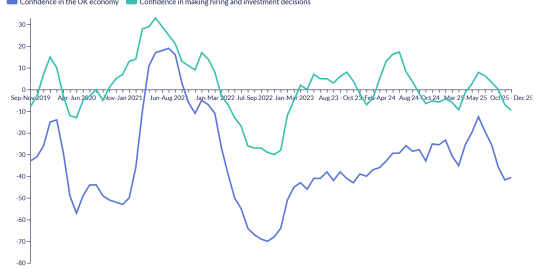Despite the job insecurity generated by the recession, one in ten workers is considering changing jobs and 31per cent of these would move for the same or slightly less money. A further nine per cent are thinking of moving.
The highest earners are the least loyal with 22per cent of those earning more than 70,000 considering a change. Lower earners are less likely to want to move: seven per cent of those with gross income of less than 25,000 compared with 14.8per cent of those earning more, according to research carried out in August on behalf of London-based headhunting consultancy McGraw Stone.
Similarly, more than a third (34per cent) of those earning 30,000 or more are willing to consider a job if they are called about it ìout of the blueî, compared with 18.7per cent of those earning less than 30,000.
Almost two thirds (64per cent) would or might consider talking about a job with someone who called them ìout of the blue. All the utilities employees and 89per cent of telecoms and technology industry employees might consider an ëout of the blueí call about a new job, compared with 78per cent of those in manufacturing and 71per cent of travel and leisure employees, the lowest percentage.
ìAt a time when it might be expected that employees are deterred from changing jobs by the fear that the ëlast in, first outí rule will apply if their new employer hits hard times, even a ëbit more moneyí would be enough to tempt 12per cent of the workers not considering changing jobs to move,î says Nick Davies, managing partner of McGraw Stone. ìBut there is a growing nervousness in case their current position is threatened if their employer discovers they are seeking another post.î
Half of the 826 people (a panel selected to echo the UKís demographics) contacted by online research company fast.MAP in August have sent their CV to a recruitment agency and 28per cent of the employees seeking a move look at recruitment ads.
ìTwo things are particularly surprising: that more than half of those not actually job hunting look at recruitment ads, more than double the number of those who are planning a move; and that so many employees, even the ones not job-hunting, can be tempted to do so by a modest pay rise or even for the same money,î says Davies.
ìAlmost half (48%) of the 81per cent majority of people currently not considering moving would be tempted by extra cash. This is particularly true in the retail/ services sector.î
Men and women are equally likely to be seeking change, while those aged under 35 are far more likely to be job hunting than those over that age. Unsurprisingly, as people get older they are correspondingly less likely to want to change jobs, with 88per cent of 55 to 64 year olds and 98per cent of those over 65 not considering a move.
ìWe commissioned this study to discover why, when redundancies are at record levels and the jobs ads columns are so short, the recruitment consultancy business remains buoyant. The responses indicate that employees are nervous about being seen to be job seeking, but are nonetheless flattered by discreet personal contact and are open to offers.
ìEven companies forced to take a tough line on pay or make redundancies still need to recruit key staff. In fact, these tough times make it even more important for them to locate and employ the very best talent.
ìBut open recruitment can increase employee discontent – hence a growing demand for the anonymous yet targeted recruitment consultancy approach. This is on top of the traditional desire to keep the competition in the dark about whatís happening.î
Retail staff have the itchiest feet
Workers in the retail and service sector are more likely to be looking for a new job than those in other industries.
Three out of ten are considering a move; thatís seven per cent more than public sector employees who are the next most restless. Across all sectors the average is ten per cent, but in the retail and service sectors this jumps to 13per cent with a further 17per cent considering a move.
Whatís more, 19 per cent of retail/service staff would be prepared to move for the same or slightly less money compared with, for example, two per cent of utilities workers, four per cent of charity workers, nine per cent of media/entertainment workers and 11per cent of manufacturing employees.
In fact, only public sector workers express similar restlessness - 41per cent of them are so keen to move on that theyíre prepared to do so without a financial incentive.
ìRetail and service workers, despite being more likely to be job hunting than those in other sectors, are not very pro-active about their job search,î says Davies.
ìOnly five per cent have sent their CV to an agency and only 11 per cent look at recruitment ads. And although17per cent would or might consider a job if someone called them ëout of the blueí to discuss it, this compares with almost two thirds (64%) of employees in other sectors.î
Charity workers seek more than extra cash
A quarter of workers in the not for profit sector who are thinking of changing jobs would not move merely in response to financial inducement and more than one in ten (13%) would move for the same money.
However, 62per cent are seeking either a bit more (31%) or a lot more (31%) money.
ìWhen asked what financial package it would take to tempt them from their job in the current financial climate, job seekers in certain sectors were not merely looking for a better pay deal,î says Davies. ìAs well as charity employees, these include education where 22per cent would not be tempted by pay and public sector 18per cent. It seems that some sectors attract individuals who are less motivated by money than by other rewards such as job satisfaction, security or a desire to be a useful member of society.î
Conversely, all those in the utility sector who are thinking of moving are seeking the same or more pay. However, none of the not for profit sector workers was prepared to move for less money, unlike 13per cent of those in media and entertainment and one in ten of those in travel and leisure.
A quarter of charity employees are considering changing jobs and a further 13 per cent are thinking of moving.
Financial sector employees most cautious about moving
Employees in the financial sector are more cautious about moving jobs than those in other sectors and far less likely to do so unless the move guarantees greater financial reward.
They are one per cent less likely than average to be considering a move (nine per cent). And only 13per cent would be prepared to move for the same or slightly more money, against 31per cent elsewhere, only a further five per cent (against nine per cent) are thinking of moving and only 11per cent (against 48per cent) of finance workers currently not thinking of moving would be tempted to do so if offered more money.
ìThe shake out of workers in the financial sector since the credit crunch is far from over, as Halifax employees have recently discovered,î says Nick Davies. ìFinancial sector employees are particularly nervous that their job security might be threatened if their employer discovers they are seeking another post.
ìOnly seven per cent have sent their CV to a recruitment agency and only six per cent look at recruitment ads, but even so, one in ten in the finance sector would or might talk about a new job if a head-hunter called them ëout of the blueí.î
Recession creates secret job hunters

Despite the job insecurity generated by the recession, one in ten workers is considering changing jobs and 31per cent of these would move for the same or slightly less money. A further nine per cent are thinking of moving




